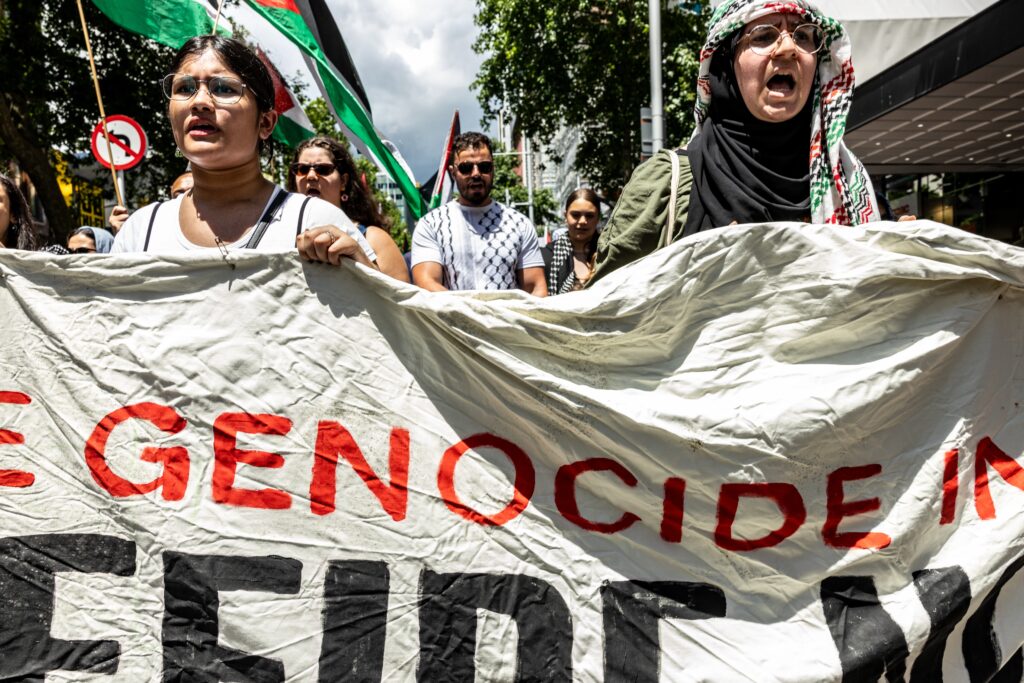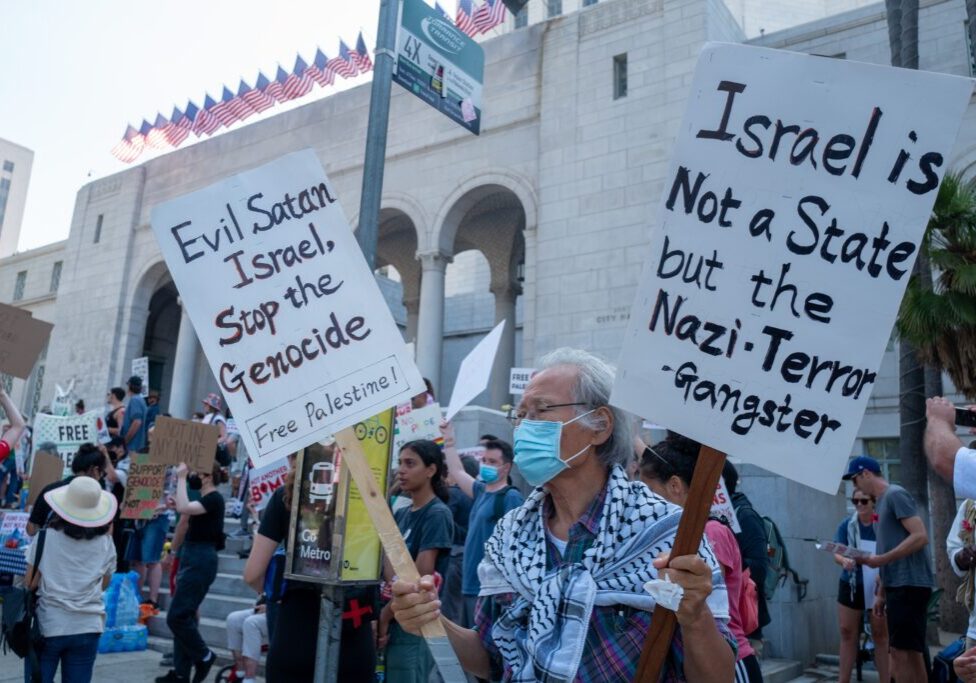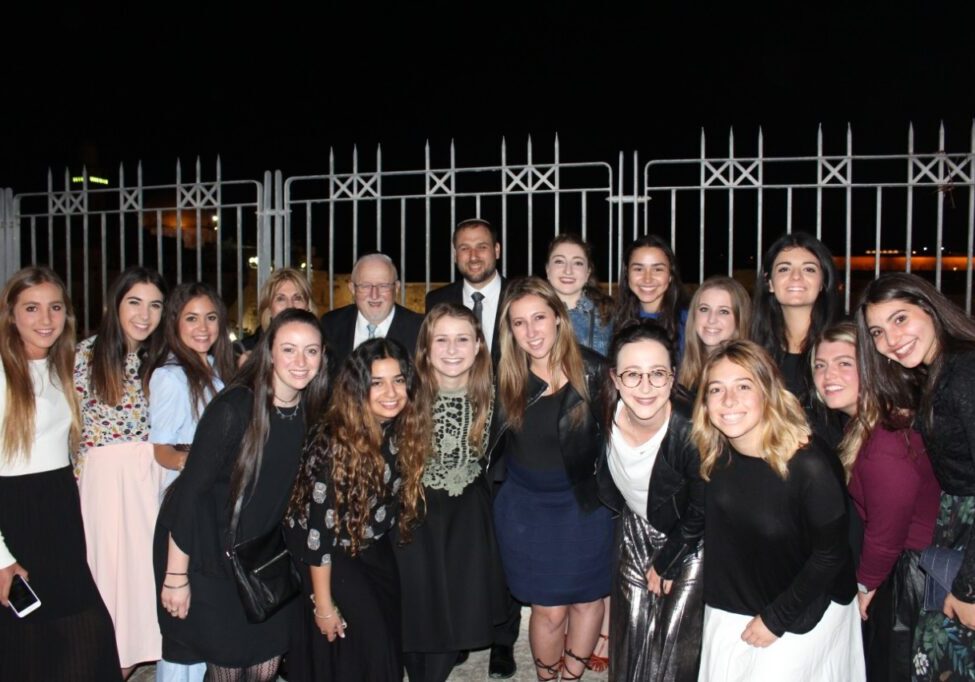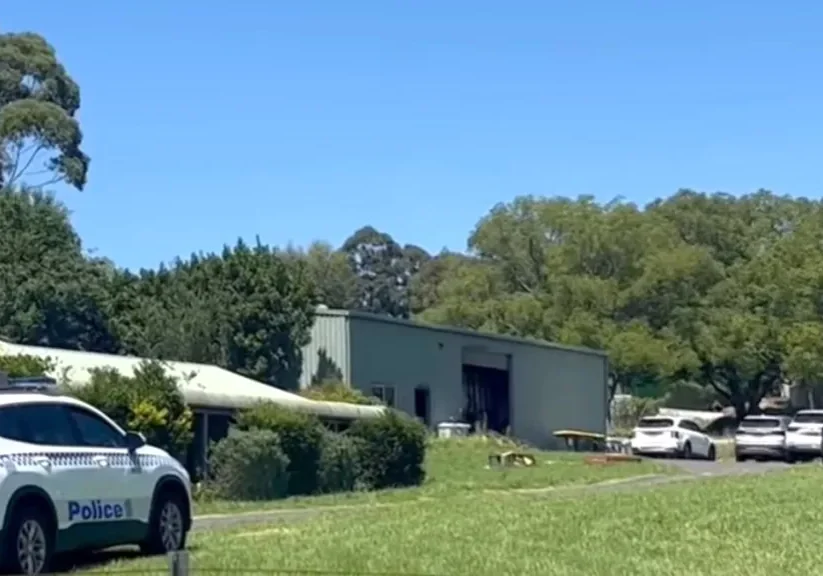Australia/Israel Review
AIR New Zealand: Rising antisemitism in NZ is ignored
Nov 20, 2024 | Miriam Bell

On the 86th anniversary of Kristallnacht, news of antisemitic attacks on Israeli football fans in Amsterdam started to filter through, but there was next to no coverage in the New Zealand media.
The odd syndicated overseas story popped up in larger publications, but they were drowned out by the usual torrent of less than balanced stories about carnage in Gaza.
No official figures in New Zealand, outside the Jewish community, said anything about what had happened in Amsterdam.
Well-known anti-Israel activist John Minto, who has become increasingly vitriolic since October 7, took to social media to justify the attacks, and claim the reports carried by media were incorrect.
Over the course of the same weekend, there was an anti-Israel protest in Christchurch, where protestors held signs with slogans such as “Hamas is here” and “We will never recognise Israel” with pictures of Hamas leaders.
Hamas is a designated terrorist entity in New Zealand, yet there was no official condemnation of this protest, or the others like it. That has become par for the course in New Zealand. There is no recognition that these supposedly “peaceful” protests are creating a hostile, threatening environment for the Jewish community.
The result? While Jews make up only 0.2% of the New Zealand population, in the past year, 13% of all hate crimes in Auckland were against Jews, according to the Holocaust Centre.
Moreover, as reported by the Australia/Israel Review previously, 80% of respondents to a survey run by the Centre in July said their children had suffered antisemitic episodes in their schools.
But the rise in antisemitism, which is often presented as “anti-Zionism”, is largely unrecognised. Instead, calls for boycotting, sanctioning or condemning Israel pop up everywhere, no matter how unrelated. Examples include the school strike for climate action, the Parliamentary Inquiry into the Banking Sector and a hikoi (protest march) against a bill aiming to reinterpret the foundational Treaty of Waitangi.
In October, the Christchurch City Council voted not to purchase goods and services from companies identified by the United Nations Human Rights Council as trading in what it describes as illegal Israeli settlements on occupied Palestinian land. It turns out Christchurch Council does not, in fact, do any business with any of the companies on the list, but most councillors still voted for the policy.
Christchurch is not alone – other councils have previously voted to call for a ceasefire in Gaza, or to fly the Palestinian flag.
In a previous column, this reporter explored the new-ish, National-led Government’s inconsistent and disappointing response to the war in Gaza, and the minimal formal contact it has had with the Jewish community.
Since then, in September, New Zealand voted in favour of a United Nations General Assembly resolution which called for Israel’s unliteral withdrawal from all “Occupied Palestinian Territories”, including the Jewish holy sites in Jerusalem, within a year, and for military, economic and diplomatic sanctions against Israel.
This vote was out of step with all of Wellington’s traditional allies, who either voted against it or abstained, and occurred despite Foreign Minister Winston Peters’ admission that New Zealand had some concerns about the text of the resolution.
Peters has been somewhat inconsistent on issues relating to Israel. A recent article on the Newsroom website said he has condemned the Israeli military’s actions in relation to UNIFIL but also “appeared to indicate support for Israel’s concerns about the peacekeepers’ work.” Likewise, he said while Israel had a right to respond to the October 7 terrorist attacks and the holding of hostages, “that has a limit to it, and now the chaos and loss of life no longer justifies it.”
Ashley Church, co-director of the Israel Institute of NZ, said the Government, and especially Peters, had started off saying all the right things, “but they have subsequently walked back, and dismantled everything they had previously said. Look at the UNGA resolution vote, look at the decision to restart funding to UNRWA, look at the decrying of Israel’s moves, regardless of context.
“The question is ‘why’… It is either policy creep due to activists in MFAT (NZ’s Ministry of Foreign Affairs and Trade) advising Peters, or Peters has had some sort of conversion on the road to Damascus to support Hamas,” he said.
“But my pick is number one… he is being misled by his MFAT advisers, who are neither impartial [n]or balanced.”
The National Party now appears just as bad as it was in 2016 when New Zealand chaired the UN Security Council and then Foreign Minister Murray McCully sponsored and voted for resolution 2334 one-sidedly condemning Israel, Church said.
“After that incident, National… MPs like Simon Bridges said New Zealand ‘got it wrong’, and it would be more careful in its votes in future. But we are seeing the same old antisemitic stuff we have seen before.
“As a Kiwi, I used to be proud of the stance that New Zealand historically took. Now, I’m embarrassed by the position the country is taking,” he concluded.
Tags: Antisemitism, New Zealand






